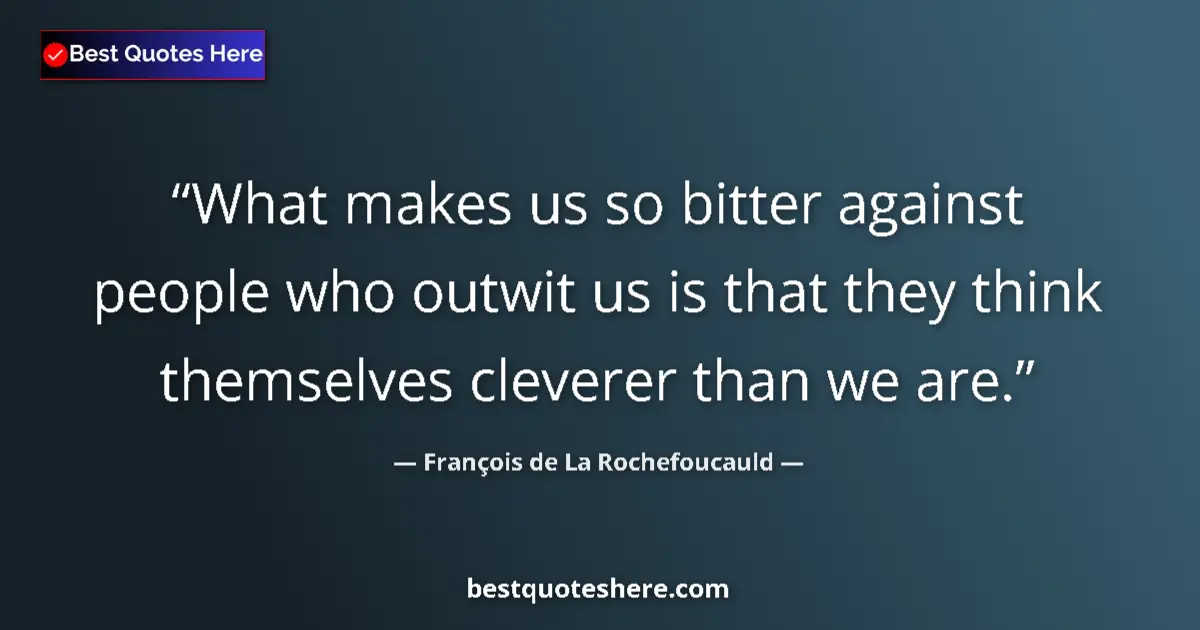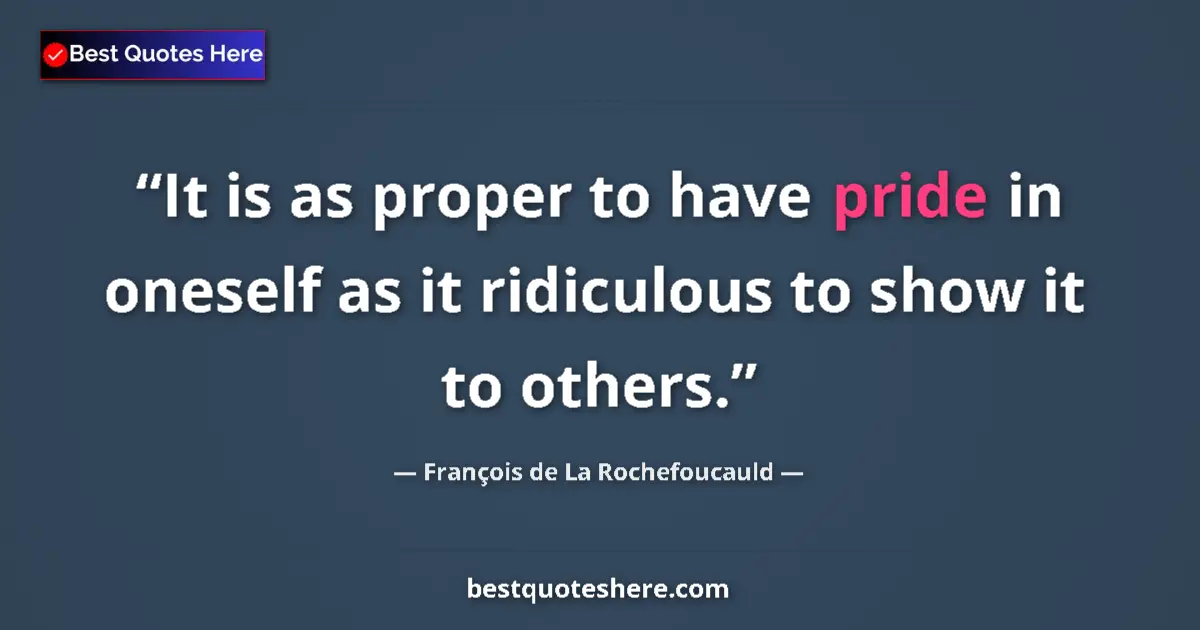
François de La Rochefoucauld Quotes
François de La Rochefoucauld (1613–1680) was an accomplished French moralist. He is the author of the famous Maximes. His work is known for its sharp, sometimes cynical, view on human behavior and motivations. La Rochefoucauld was a nobleman of the 17th century. His writings remain influential in French literature and thought.
Professions: Moralist, Professional Writer
Nationalities: French
- September 15, 1613
- March 16, 1680
- Works: Author of 'Maximes'
- Wikipedia





It requires no small degree of ability to know when to conceal one's ability.›






It is a mistake to imagine, that the violent passions only, such as ambition and love, can triumph over the rest. Idleness, languid as it is, often masters them all; she influences all our designs and actions, and insensibly consumes and destroys both passions and virtues.›



In order to succeed in the world people do their upmost to appear successful.›





It is as proper to have pride in oneself as it ridiculous to show it to others.›


Numberless arts appear foolish whose secret motives are most wise and weighty.›

It is not enough that we should succeed, but our friends must fail as well.›

When our hatred is violent, it sinks us even beneath those we hate.›



Nothing prevents one from appearing natural as the desire to appear natural.›

True bravery means doing alone that which one could do if all the world were by.›




Selfishness is the grand moving principle of nine-tenths of our actions.›



We forget our faults easily when they are known to ourselves alone.›




It is a great act of cleverness to be able to conceal one's being clever.›





All the passions are nothing else than different degrees of heat and cold of the blood.›

The heat of youth is not more opposed to safety than the coldness of age.›








It is much easier to seem fitted for posts we do not fill than for those we do.›



A lofty mind always thinks nobly, it easily creates vivid, agreeable, and natural fancies, places them in their best light, clothes them with all appropriate adornments, studies others' tastes, and clears away from its own thoughts all that is useless and disagreeable.›




